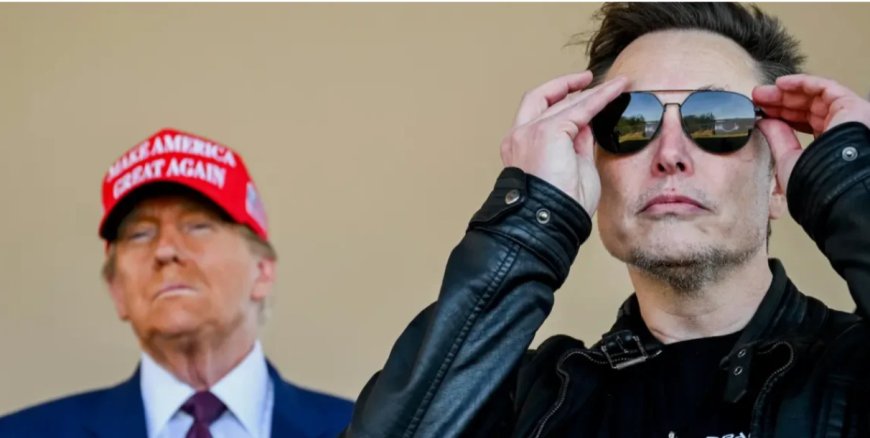Trump and Musk Team Up: How DOGE Could Reshape US Environmental Policy and Federal Spending
Explore the implications of President Donald Trump hiring Elon Musk to lead the Department of Government Efficiency (DOGE) and its potential impact on US environmental policy, federal spending, and fossil fuel subsidies.

President Donald Trump of the United States has hired firebrand Elon Musk to assist him in his repeated promises to overthrow the federal government. As the Department of Government Efficiency (DOGE) chairman, Musk wants to reduce the US budget by $2 trillion.
According to a Grist post from early January, the department anticipates reducing the government workforce by 75%, roughly one-third of all federal spending. Trump declared when he announced DOGE that department officials will "restructure" agencies, "slash" rules, "dismantle" bureaucracy, and decrease "wasteful" spending. Vivek Ramaswamy, Musk's former colleague at DOGE and unsuccessful presidential contender, took to X to vow, "We will not go gently." Since then, however, he has left the department, leaving Musk in charge.
All things considered, DOGE's proposals are probably going to be detrimental to American environmental policy and the historic Inflation Reduction Act, a climate bill signed into law by the Joe Biden administration. However, if DOGE uses its scalpel broadly enough, it might appease environmentalists by doing away with some of the things they have long detested, such as subsidies for fossil fuels.
"It's a truth test to all of their messaging," stated Matthew Tejada, a senior vice president at the Natural Resources Defense Council and a former official at the Environmental Protection Agency. "These subsidies to the oil and gas sector, which enable these global firms to generate billions of dollars annually, contradict all of their other statements."
All things considered, DOGE's proposals are probably going to be detrimental to American environmental policy and the historic Inflation Reduction Act, a climate bill signed into law by the Joe Biden administration. However, if DOGE uses its scalpel broadly enough, it might actually appease environmentalists by doing away with some of the things they have long detested, such as subsidies for fossil fuels.
"It's a truth test to all of their messaging," stated Matthew Tejada, a senior vice president at the Natural Resources Defense Council and a former official at the Environmental Protection Agency. "These subsidies to the oil and gas sector, which enable these global firms to generate billions of dollars annually, contradict all of their other statements."
Companies can deduct the majority of the cost of drilling new oil and gas wells thanks to a significant tax credit. Removing this "intangible drilling costs" clause might result in an extra $6 billion in revenue by 2032, according to the Joint Committee on Taxation, a nonpartisan congressional panel. Another, known as the percentage depletion tax credit, has existed since 1926 and enables independent producers to recoup development expenses of diminishing coal, gas, and oil reserves. Removing it might bring in an extra $7.3 billion.
According to Mark Jacobson, a professor of civil and environmental engineering at Stanford University, "I don't know how much they will be able to cut the tax code subsidies." "Oil and gas companies are likely to successfully lobby to protect their interests," he said.
Jacobson stated, "They don't touch on hidden subsidies." "The largest subsidy is letting these businesses take advantage of our health."
Several requests for comment were not answered by the American Petroleum Institute or the Trump transition team.
Tejada and Jacobson both stated that they would like to see more from DOGE than only subsidies for fossil fuels. Tejada is keeping an eye on a deadline that comes this spring: the expiration of the tax cuts from the first Trump administration. The government could try to achieve a balanced budget by allowing them to expire. According to Jacobson, Washington's backing of maize ethanol fuels is another subject that is frequently disregarded.
The government has invested billions in promoting a fuel that now makes up 45% of all maize farmed in the United States and has been shown to have more negative effects on the climate and ecology than gasoline.
However, they say that these aspirations for DOGE to address environmental issues are still just that—hopes. Jacobson predicted that they would ultimately make far fewer cuts than they had intended.
This story was first published on Grist as part of the global journalistic partnership Covering Climate Now, which aims to improve coverage of the climate issue.
 Kinyarwanda
Kinyarwanda
 English
English









































































